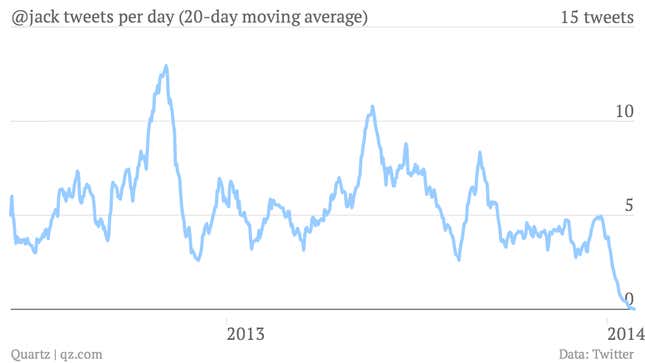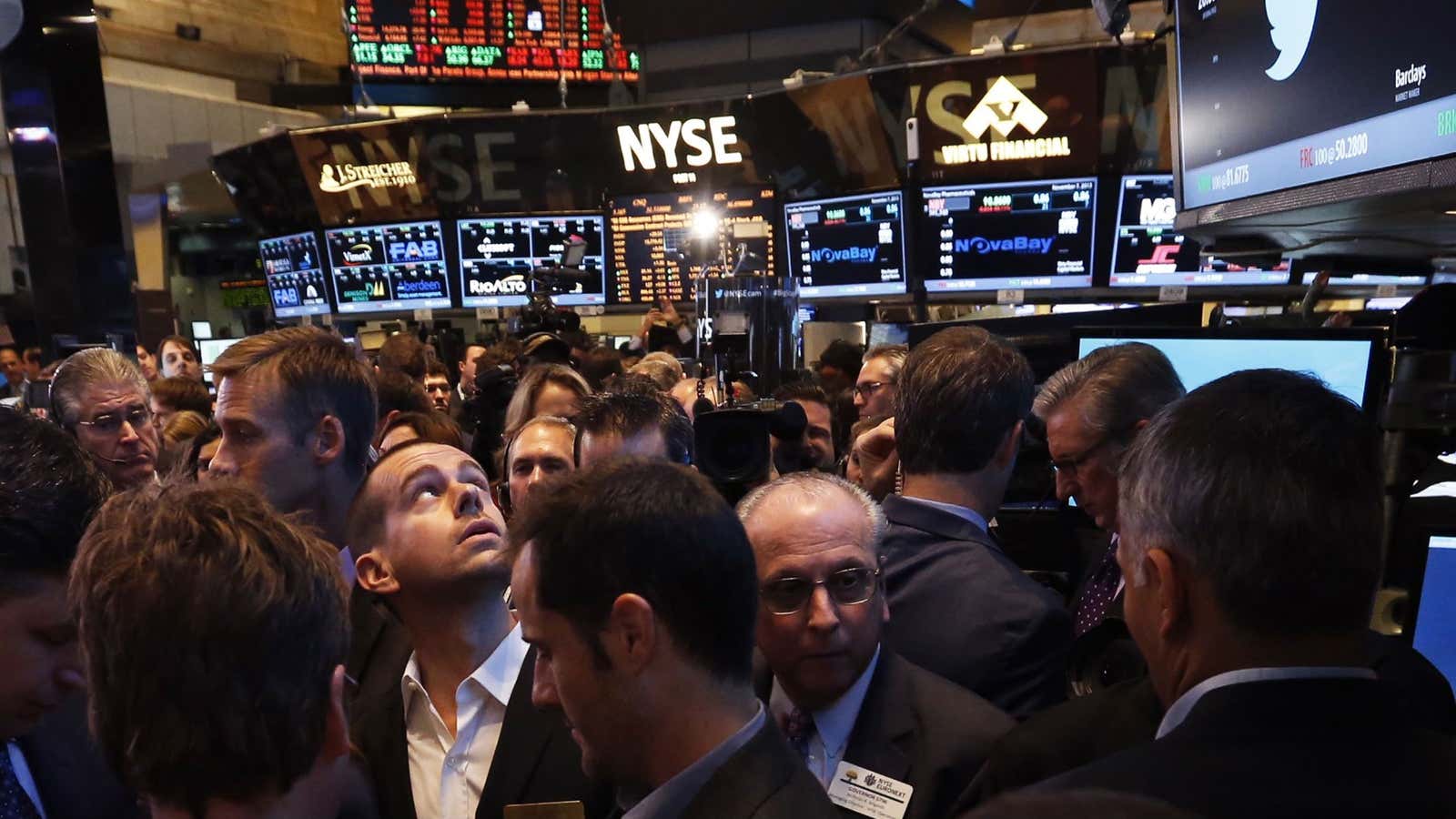Just putting this out there: Jack Dorsey, the executive chairman and co-founder of Twitter, hasn’t tweeted since January 7. And people are starting to notice.
This would be a non-story—OK, it almost certainly is a non-story—except that Dorsey is among the world’s most visible business executives, thanks to the social media service he helped create. He is a prolific tweeter, and this is the first time since at least the middle of 2012 that Dorsey’s Twitter activity has fallen anywhere near this low (yes, we calculated it):

Dorsey, whose day job is CEO of mobile payments startup Square, isn’t on vacation, according to someone familiar with his schedule. He gave a big speech in New York on January 15. Dorsey, who has expressed an ambition to be mayor of New York, usually tweets when he’s in town, but didn’t this time.
I’ve emailed Dorsey and Square’s public relations department, asking somewhat sheepishly about the Twitter silence, but haven’t heard back.
So should we care? It would probably be a mistake for, say, investors to read much into something like this. (And in case anyone is tempted to assume the worst, note that Dorsey has been marking other people’s tweets as favorites during his silence, including one today.) Still, his unusually public persona makes a respite much more conspicuous. And sometimes it is justifiable to read the tea leaves of social media use: Dorsey posted 519 photos to Instagram, but then abruptly stopped after Facebook beat out Twitter to acquire the startup.
We’ve previously written about how Twitter’s Dick Costolo may be the first CEO of a publicly traded company to reveal his location in real-time—through his tweets. (He scaled back that behavior after Twitter’s IPO.) Salesforce CEO Marc Benioff recently talked about how his friend Michael Dell called him up after noticing a drop-off in activity on Benioff’s FitBit, which tracks his physical activity.
“I’m worried about you,” Dell said.
Whether you think there’s any profound meaning behind Dorsey’s Twitter blackout, this kind of thing is only going to happen more often. Investors, who go to great lengths for the slightest of insight into a company’s leadership, will have to grapple with whether any of this is important. (The press, too.) And executives may have to give more thought to the messages conveyed by their social media activity—even the message they send by not sending messages at all.
